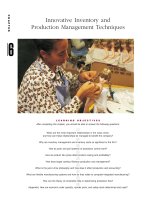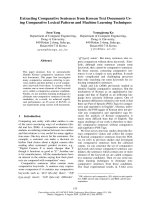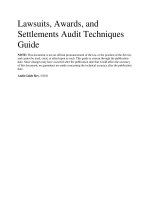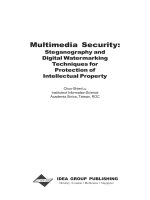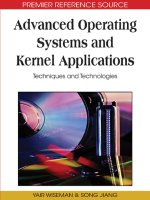Eliciting and concept checking techniques
Bạn đang xem bản rút gọn của tài liệu. Xem và tải ngay bản đầy đủ của tài liệu tại đây (150.17 KB, 4 trang )
Thực hành dạy học tại trường sư phạm – Mai Hương 2020
ELICITING TECHNIQUES
Eliciting vocabulary
1. Work in pairs. Describe the different ways the teacher teaches the words doctor,
nurse and pilot in section C1 (a and c). Explain why the teacher uses different
strategies.
2. Read this advice for eliciting vocabulary. Which points are helpful?
a. Try to trick the learners or they will find it too easy.
b. Plan how you will elicit things before the lesson.
c. Keep eliciting as simple and quick as possible.
d. Make sure you elicit everything; never give in and just tell the learners.
e. If the learners don’t get the word quickly, try giving them the first sound or the
word.
Match the names of the techniques with the following illustrations
1. Visuals
5. Example
2. Mime
6. Synonym/Antonym
3. Realia
7. Translation
4. Situation/Explanation
A. …………………………
Example: intelligent
T asks “What’s another word for clever?”
Example: stupid
T asks “What’s the opposite of clever?”
B. …………………………
Example: a car
C. …………………………
Example: honest
T explains “I don’t tell lies. I don’t cheat
in exam. I tell the truth”.
T asks “What am I? tell me the word in
Vietnamese.” Good. Now listen to it in
English “Honest”.
E. …………………………
Example: cold
T: mimes feeling cold
T asks “How do I feel?”
Example: (to) fly a kite
T mimes flying a kite
T asks “What am I doing?”
D. …………………………
Example: furniture
T lists examples of furniture: “Tables, chairs,
beds – theses are all … (furniture)… Give me
another example of … (furniture)…”
T shows a picture of car or
draws a car on the board.
F. …………………………
Example: bananas (count), rice (uncount)
T brings real bananas and rice into class.
T asks “What is this?”
Thực hành dạy học tại trường sư phạm – Mai Hương 2020
G. …………………………
Example: (to) forget
T asks “How do you say “quên” in
English?”
Example: open (adj), closed (adj)
T opens and closes the door.
T says “Tell me about the door: it’s … what”
Watch the video clip and tick the techniques that the teacher used to elicit the
words:
Visuals
Mime
Realia
Situation/
Explanation
Example
Synonym/
Antonym
Translation
wallet
charity
careless
Suggest ways to elicit the following words and practise eliciting these words:
a. watch (noun)
b. game show
c. to flatter
d. hurricane
Thực hành dạy học tại trường sư phạm – Mai Hương 2020
CONCEPT CHECKING TECHNIQUES
Task A: Read the lesson transcript
a. What is the purpose of the teacher’s questions?
b. Complete the students’ answers 1-6?
c. What do you notice about the answers?
The teacher has just taught the word shoplift, and given the example sentence ‘The
kids were caught shoplifting sweets’.
T: Did the kids pay for the sweets?
Ss: 1
T: Is this a crime?
Ss: 2
T: Can you shoplift a washing machine?
Ss: 3
T: So, if shoplifting used about very big things?
Ss: 4
T: Can it be used about very valuable things?
Ss: 6
Task B
What’s wrong with the following concept checking questions (CCQs) to check
if your students understand the meaning of the following sentences/ phrases/
words and how would you correct them?
1. He didn’t know if he was coming or going?
Was he coming?
Was he going?
Did he know?
2. Wardrobe
Is it made of wood?
Is there one in your house?
3. He wandered about the town.
Did he wander about?
4. The conductor checked the ticket.
Did he verify or ascertain that they were in order?
5. The LED indicator will turn off.
What will turn off?
Thực hành dạy học tại trường sư phạm – Mai Hương 2020
Rules for concept checking techniques. Fill in the blanks:
1. Make sure that you are checking the ……………..
2. Make sure that you are ……………... about the meaning.
3. Don’t use the …………………………. In the question.
4. Grade the ………………. that you use below the target language.
5. Make sure that your questions ……………… the right language.
Micro-teaching: elicit the meanings and then use CCQs to check the meanings
of:
1. The words:
- ‘snow’,
- She picked up her briefcase and left. (The teacher is worried that ‘briefcase’ will be
confused with ‘suitcase’.
- The car was a write-off after the accident.
2. The structures:
- He used to smoke 20 cigarettes a day.
- When she arrived at the airport, the plane had taken off.
- You must have seen her.


